If you’ve ever been to a festival or cultural event, you may have seen people with intricate designs on their skin that look like tattoos but aren’t permanent. These designs are created using a paste made from the henna plant, and they’re known as henna tattoos. But what is the meaning behind these beautiful designs, and how do you choose the right one for you? In this article with Impeccable Nest, we’ll explore the henna tattoo meaning and designs in depth.
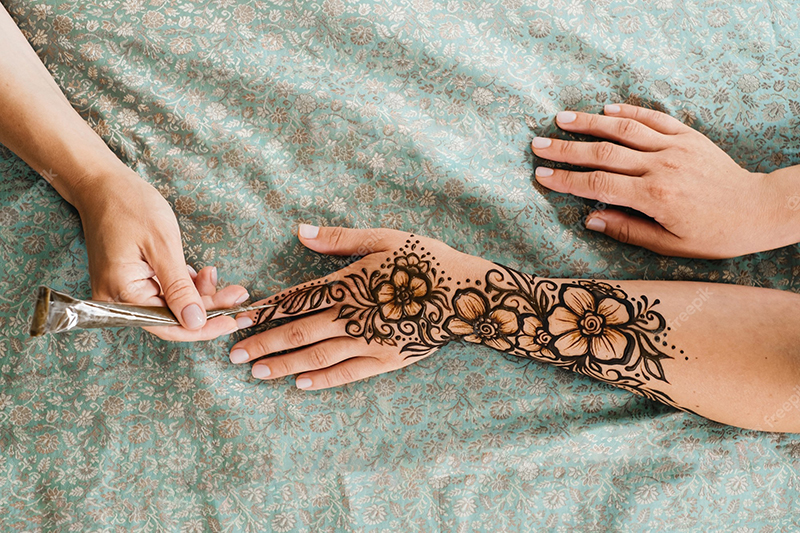
History and Origins of Henna Tattoo Designs
The history of henna tattoo designs can be traced back to ancient India, where they were originally used as part of traditional wedding ceremonies. Over time, they spread to other parts of South Asia and the Middle East, where they became associated with various cultural practices and beliefs. Today, henna tattoos are enjoyed by people all around the world, regardless of their cultural background.
Henna Tattoo Meaning: Understanding the Significance
Henna tattoos, also known as mehndi, have cultural and symbolic significance in various parts of the world. Here are some common meanings associated with henna tattoos:
Cultural and Traditional Significance
Henna tattoos, also known as mehndi, have a long and rich cultural history in several countries, including India, Pakistan, Bangladesh, and North Africa. The tradition of applying henna designs to the skin dates back centuries and is deeply rooted in the customs, beliefs, and practices of these cultures.
In many of these countries, henna tattoos are associated with celebrations and rituals. Weddings, for example, are an important occasion where the bride and her female relatives often adorn their hands and feet with intricate henna designs. The application of henna has become an essential part of the wedding ceremony and symbolizes good luck, prosperity, and a happy marriage.
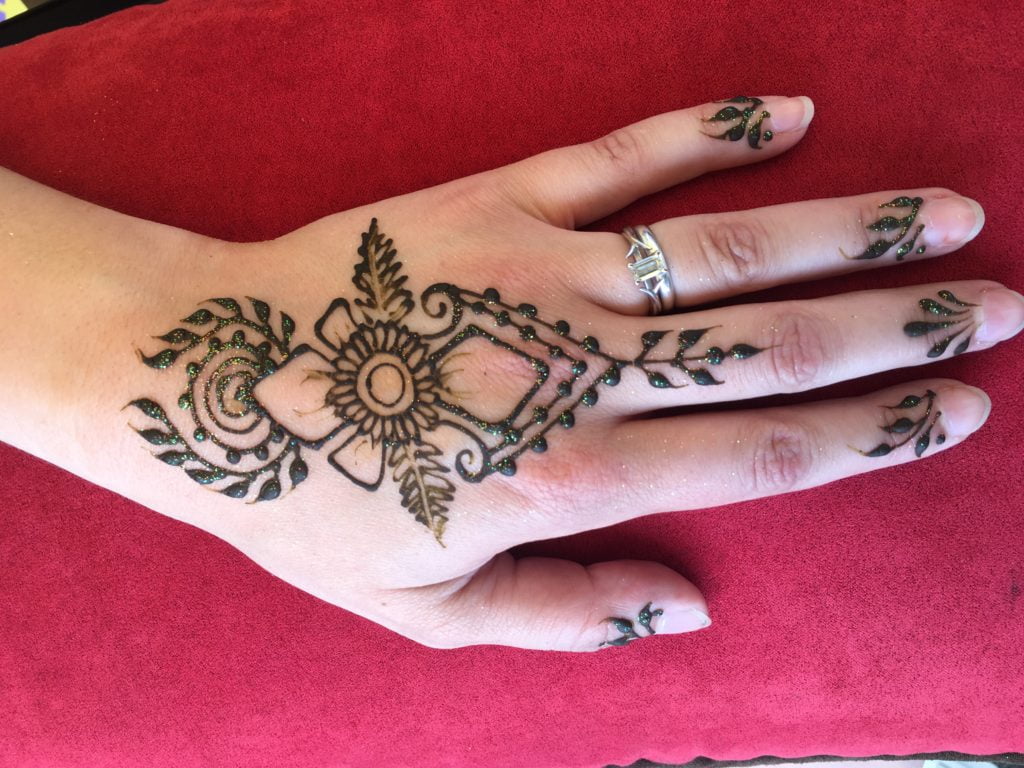
Festivals and religious ceremonies are other occasions where henna tattoos are commonly used. In India, the festival of Diwali is celebrated by lighting lamps and creating beautiful rangoli designs. Applying henna is also a significant part of this festival as it is believed to bring good luck and ward off evil spirits.
Similarly, in Islam, henna is used during Eid-al-Fitr and Eid-al-Adha celebrations. It is common practice for women to apply henna designs on their hands and feet during these festivals.
Apart from its significance in cultural celebrations, henna is also used for medicinal purposes in some cultures. It is believed to have cooling properties and can help alleviate headaches, fever, and skin irritations.
The art of henna has evolved over time, with various styles and patterns emerging in different regions. In India, for example, Rajasthani and Marwari styles are popular, while Arabic designs are prevalent in North Africa and the Middle East. As a result, henna designs have become a way of expressing cultural identity and individual creativity.
In recent years, henna tattoos have gained popularity in Western countries as a form of temporary body art. However, it is important to note that henna tattoos derived from natural henna leaves are safe to use, but black henna tattoos that contain harmful chemicals can cause severe skin reactions.
Weddings and Celebrations
Henna tattoos, also known as Mehndi, are an age-old tradition that has been practiced for centuries in various cultures around the world. While originally hailing from ancient Egypt and India, the use of henna tattoos has become a common part of wedding festivities in many cultures, including Islamic, Hindu, and Middle Eastern traditions.
In these cultures, henna tattoos are seen as a symbol of joy, beauty, and the sacred bond between two people. They are traditionally applied to the bride’s hands and feet before her wedding day as a way to celebrate her transition to married life. The intricate patterns and designs are carefully crafted by a skilled artist, using a paste made from the dried leaves of the henna plant.
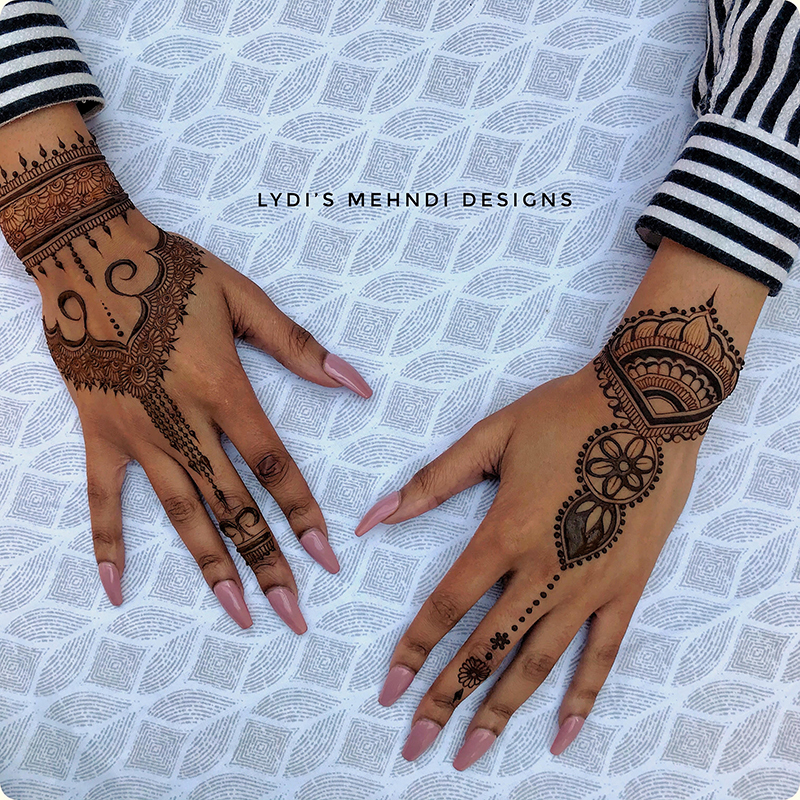
The process of applying henna is not only aesthetically pleasing but also rich in cultural significance. In some cultures, it is believed that the darker the henna stain, the stronger the love between the couple will be. Additionally, many brides opt to have their groom’s initials or other meaningful symbols hidden within the design, adding a personal touch to the experience.
Beyond just the symbolism and cultural significance, henna tattoos are also valued for their natural properties. Henna paste is believed to have cooling properties, making it a popular choice during hot summer months. Furthermore, the dye itself is natural and non-permanent, typically fading away within a few weeks.
Overall, henna tattoos are a beautiful and meaningful tradition that add a unique touch to wedding festivities. Whether celebrating love, culture, or simply enjoying the beauty of the intricate artwork, henna tattoos are sure to leave a lasting impression on all who witness them.
Fertility and Protection
Henna tattoos, also known as mehndi, have been used for centuries in various cultures around the world, particularly in India, Africa, and the Middle East. In these cultures, henna tattoos are seen not just as a form of decorative body art, but also as having spiritual and symbolic significance.
One belief surrounding henna tattoos is that they have protective qualities and can ward off evil spirits. This stems from the idea that certain symbols and patterns used in henna designs, such as the eye or the hand of Fatima, have a powerful spiritual energy that can repel negative forces. Some cultures even practice henna tattooing as part of a ritual to protect newborn babies from harm or illness.
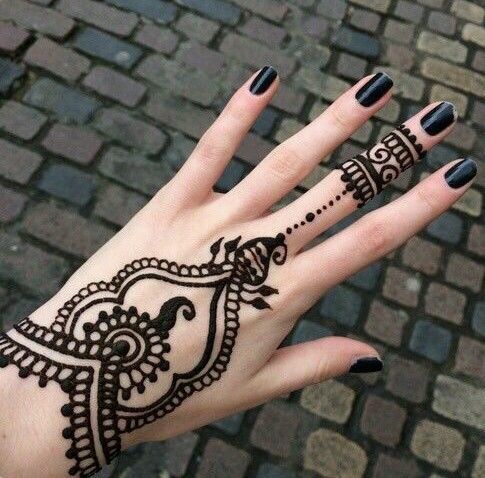
Additionally, henna tattoos are also believed to bring good luck and prosperity. Many brides in Indian and Middle Eastern cultures get henna tattoos on their wedding day to symbolize this, as well as to honor traditions and ancestors. The intricate designs of henna tattoos are often thought to help attract positive energy and abundance into one’s life.
In some cultures, pregnant women may also get henna tattoos as a way to protect themselves and their unborn child. It is believed that the natural dye used in henna tattoos has cooling properties that can help soothe the nerves and reduce stress during pregnancy. Certain symbols and patterns used in henna designs, such as the lotus flower or the tree of life, are also thought to represent fertility and new beginnings, making them a popular choice for expecting mothers.
Temporary Art and Expression
Henna tattoos, also known as mehndi tattoos, have been practiced for centuries in various cultures around the world. They are a form of temporary body art that involves dyeing the skin with henna paste, which is made from the leaves of the henna plant. Henna tattoos are popular among individuals who want to express themselves creatively through body art without committing to permanent tattoos.
One of the primary reasons people get henna tattoos is for their aesthetic appeal. The designs are often intricate and beautiful, featuring patterns such as flowers, vines, and geometric shapes. These designs can be customized to suit an individual’s tastes and preferences, making each henna tattoo unique.
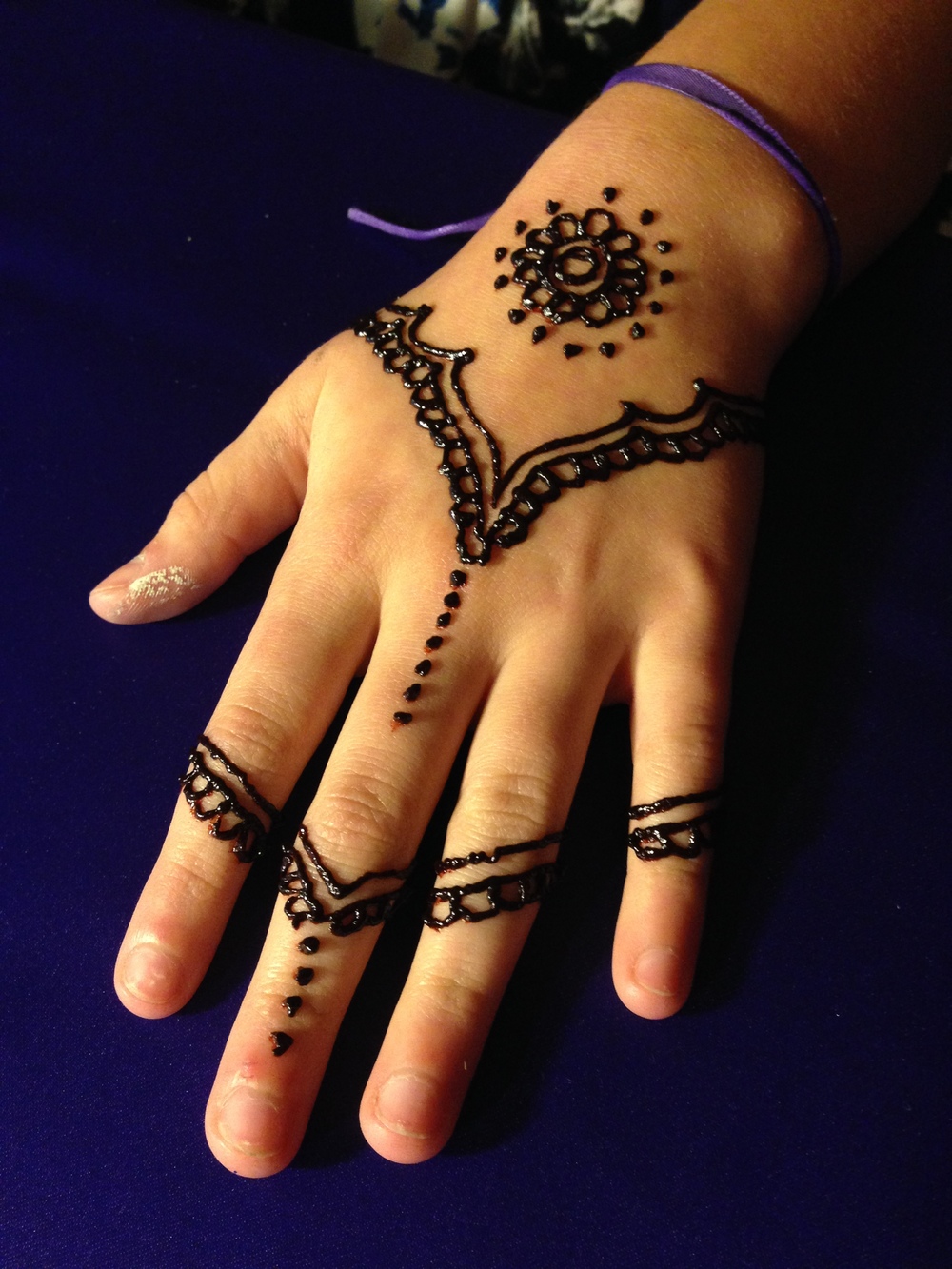
Additionally, henna tattoos are a popular choice for special occasions, such as weddings, festivals, and other celebrations. In many cultures, henna tattoos are seen as a symbol of good luck and are believed to bring prosperity and happiness to those who wear them.
Another reason people choose to get henna tattoos is that they are relatively safe and non-invasive compared to traditional tattoos. Henna paste is made from natural ingredients and does not contain any harmful chemicals or dyes. However, it is important to note that some people may experience mild skin irritation or allergic reactions to henna paste, so it is always recommended to do a patch test before applying the tattoo.
In conclusion, henna tattoos offer a temporary and creative way for individuals to express themselves through body art. Whether it’s for their aesthetic appeal, cultural significance, or symbolic meaning, henna tattoos provide a unique way for individuals to showcase their personality and creativity.
Blessings and Well-Being
Henna tattoos have been used for centuries to symbolize blessings, well wishes and positive energy. The intricate patterns and designs created by henna artists hold deep spiritual significance in many cultures around the world.
The application of henna is often accompanied by prayers or positive thoughts, which add to the spiritual meaning of the practice. In some cultures, henna is applied on special occasions such as weddings, religious ceremonies, or festivals to bless and protect the person wearing it. Henna is believed to have a purifying effect, cleansing the body and soul of negative energy and promoting positive energy flow.
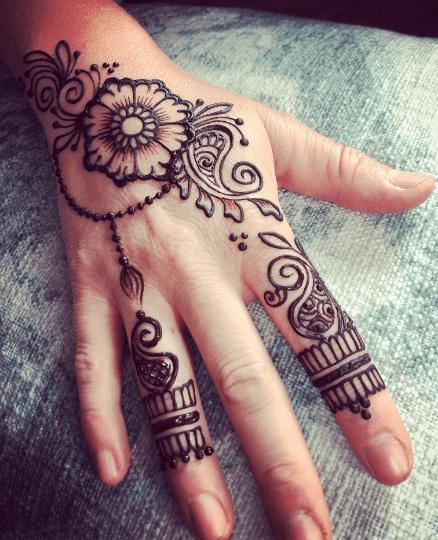
In addition to its spiritual symbolism, henna tattoos are also considered a form of self-expression and body art. Henna artists use their creativity and skill to create unique designs that reflect the personality and style of the wearer. Every henna tattoo is one-of-a-kind, making it a truly personal and meaningful piece of art.
The popularity of henna tattoos has grown in recent years, with many people seeking them out for their beauty and symbolism. In addition to traditional designs, henna artists are creating new styles and incorporating modern elements into their work. From simple patterns to elaborate full-body designs, henna tattoos offer endless possibilities for self-expression and spiritual connection.
Overall, henna tattoos are a powerful symbol of blessings, positivity, and spiritual energy. Whether worn for special occasions or as a personal expression of creativity, they hold deep meaning and significance in many cultures around the world.
Rites of Passage
Henna tattoos, also known as Mehndi, have been used for centuries in various cultures to mark important life transitions. These temporary body decorations are created using a paste made from henna leaves, which is applied to the skin in intricate patterns and left to dry before being washed off.
In many cultures, henna tattoos are a traditional part of coming-of-age ceremonies. This is because they offer a beautiful and meaningful way to symbolize the transition from childhood to adulthood and the new responsibilities that come with it. Young people who are about to enter adulthood are often given henna tattoos to mark this milestone in their lives.
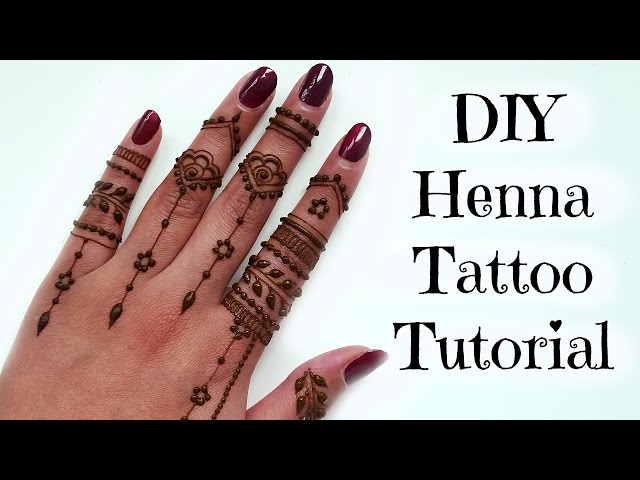
The designs used in henna tattoos can vary widely depending on the culture and the occasion. In some cases, the designs may be purely decorative, featuring intricate floral or geometric patterns. However, in other cases, they may be highly symbolic, representing key aspects of the individual’s identity or cultural heritage.
For example, in Indian culture, henna tattoos are an integral part of wedding celebrations. The bride will typically have elaborate designs applied to her hands and feet, while other members of the bridal party may also have henna tattoos to mark the occasion. The designs used in these tattoos often incorporate auspicious symbols such as peacocks, lotus flowers, and elephants, which are believed to bring good luck and prosperity.
Similarly, in Moroccan culture, henna tattoos are often used to celebrate Eid al-Fitr, the end of Ramadan. These tattoos may feature intricate geometric patterns, as well as symbols such as the crescent moon and star, which represent the Islamic faith.
Overall, henna tattoos offer a beautiful and meaningful way to mark important life transitions, whether it’s the transition from childhood to adulthood or other significant milestones. Whether purely decorative or highly symbolic, these temporary body decorations are a powerful expression of culture, tradition, and personal identity.
Symbolism in Designs
Henna tattoos, also known as mehndi, have been a popular form of body art for centuries in many cultures throughout the world. The intricate designs and patterns used in henna tattoos are not just decorative but can also carry diverse meanings and symbolism.
Floral motifs are one of the most common designs used in henna tattoos, and they can hold various interpretations depending on the particular flower depicted. For example, lotus flowers represent purity and enlightenment, while roses symbolize love and passion. Other flowers like daisies and sunflowers may represent innocence and happiness, respectively.
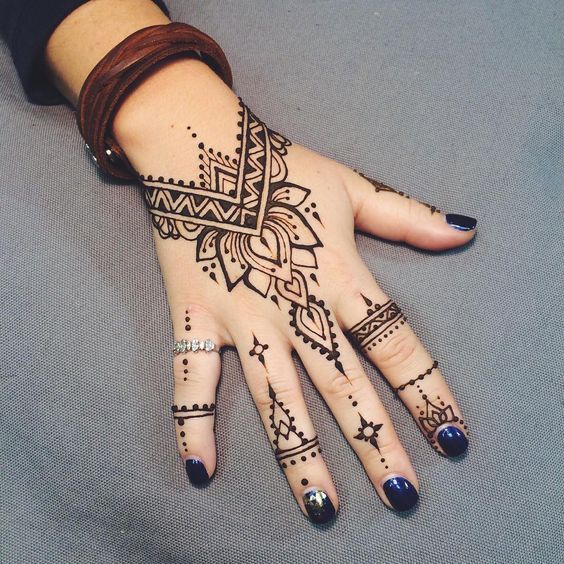
In addition to floral designs, geometric patterns are also prevalent in henna art. These designs often feature intricate shapes and symmetrical arrangements that can symbolize unity and balance. For instance, mandala patterns are circular designs that represent the universe and are thought to promote tranquility and spiritual harmony.
Other geometric designs used in henna tattoos include triangles, squares, and diamonds. These shapes can be arranged in various ways to create complex patterns that express different ideas. For example, a series of interlocking triangles can represent strength and stability, while a square within a circle might symbolize the balance between the physical and spiritual worlds.
Henna tattoos can also incorporate symbols and images that hold specific cultural or religious significance. For example, in Indian culture, peacock feathers are often included in henna designs as they represent beauty and good luck. Similarly, Arabic henna designs often feature calligraphy and Islamic symbols that convey spiritual messages and blessings.
In conclusion, the designs and patterns used in henna tattoos can carry an array of meanings and symbolism. From floral motifs that represent beauty and growth to geometric designs that signify unity and balance, henna art offers a rich and fascinating world of artistic expression. Whether you opt for a traditional design or something more personal, each henna tattoo is a unique and meaningful work of art.
It’s important to recognize that the meanings of henna tattoos can vary significantly based on cultural context, individual beliefs, and personal intentions. While henna tattoos are often associated with joyous celebrations and positive symbolism, their meaning can be deeply personal and nuanced. If you’re considering getting a henna tattoo, taking the time to learn about its cultural significance and understanding the designs you choose can add depth to the experience.
Henna Tattoo Designs: Inspiration and Ideas
If you’re looking for henna tattoo design ideas, the possibilities are endless! From traditional patterns to modern interpretations, there are countless designs to choose from. Here are some popular henna tattoo designs to consider:
Mandala
Mandala designs are intricate circular patterns that often feature geometric shapes and symbols. They are popular in henna tattooing as they represent unity, harmony, and balance.
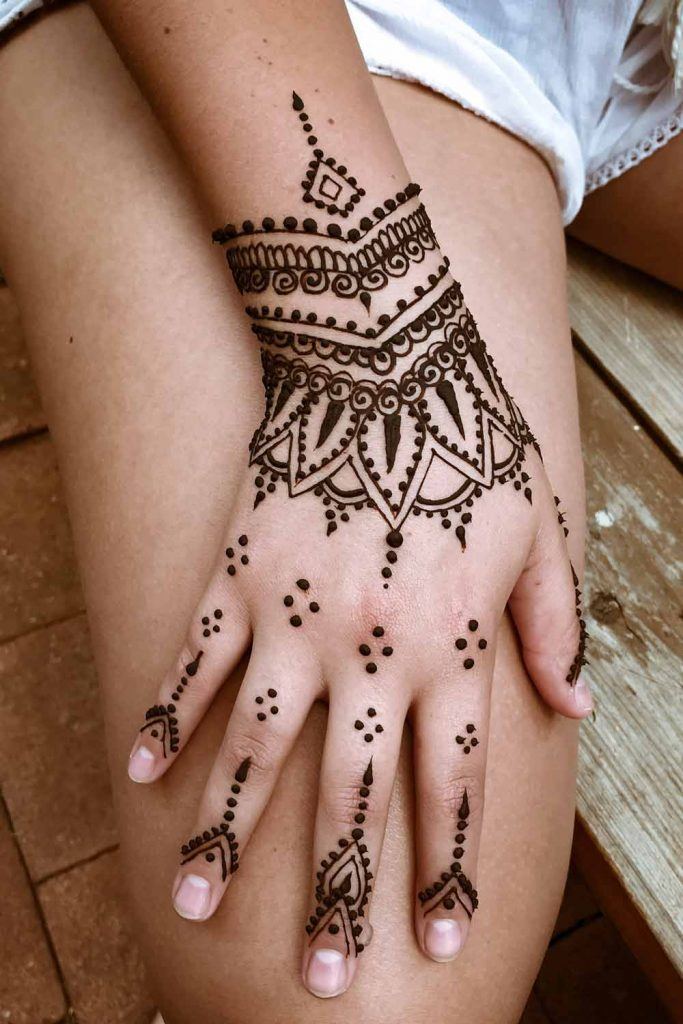
Paisley
Paisley designs are timeless and elegant, featuring curved shapes and intricate details. They can be incorporated into larger designs or used on their own as a standalone piece.
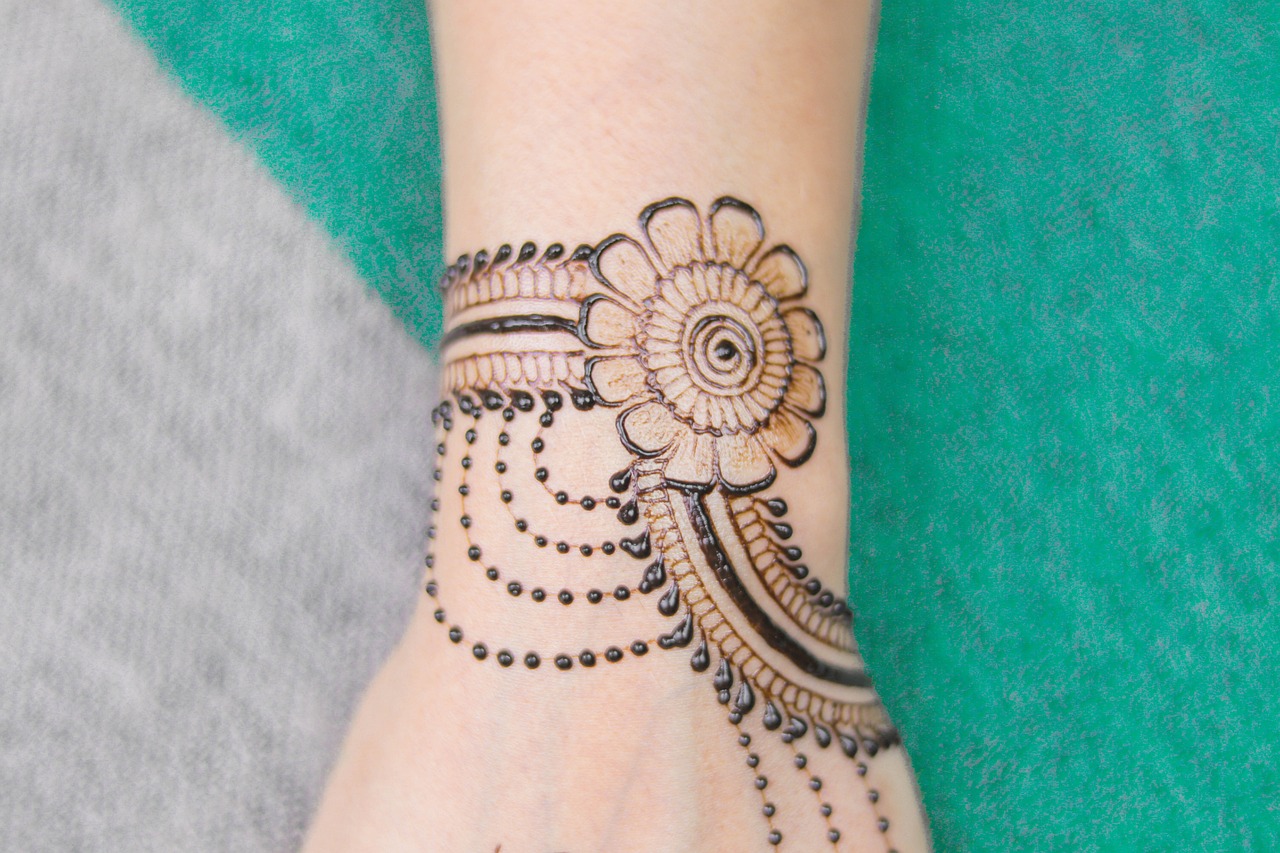
Floral
Floral designs are a classic choice for henna tattoos, often incorporating roses, lotus flowers, and other blooming buds. These designs can represent femininity, beauty, and growth.
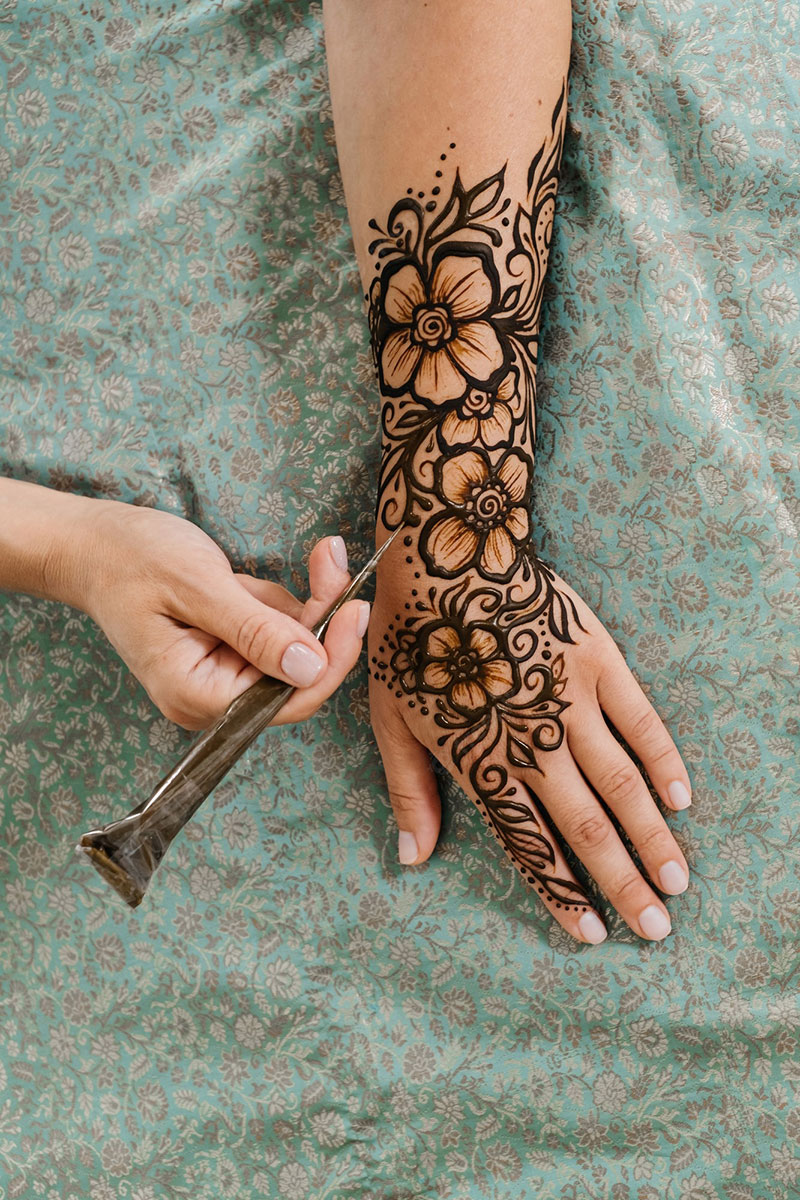
Arabic
Arabic henna designs often feature bold lines and intricate patterns, with symbols representing luck, happiness, and protection. They are a popular choice for weddings and special occasions.
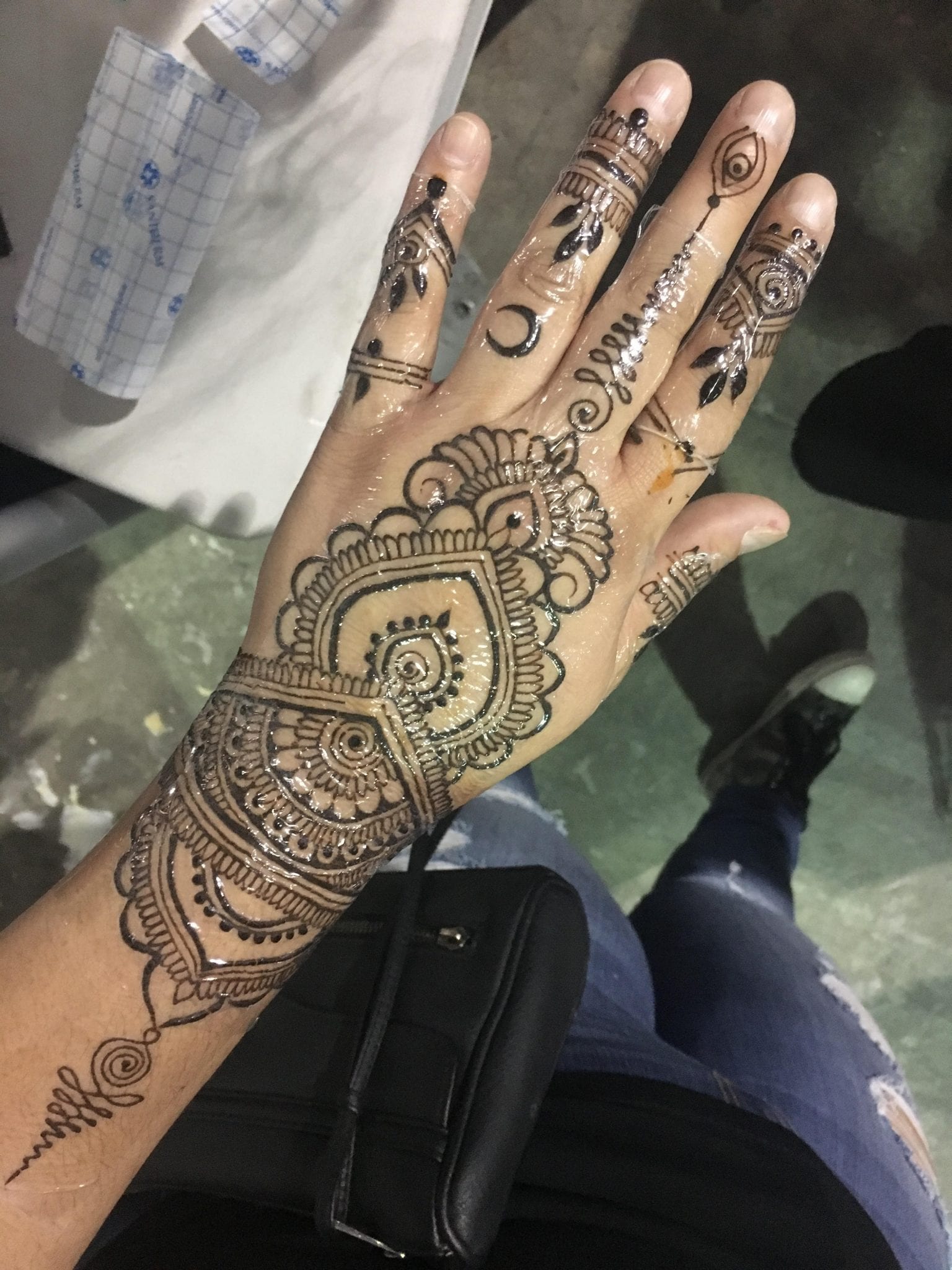
Animal
Animal-inspired henna designs can be used to represent different qualities and traits such as strength, grace, and wisdom. From birds to elephants, there are countless animals to choose from when getting a henna tattoo.
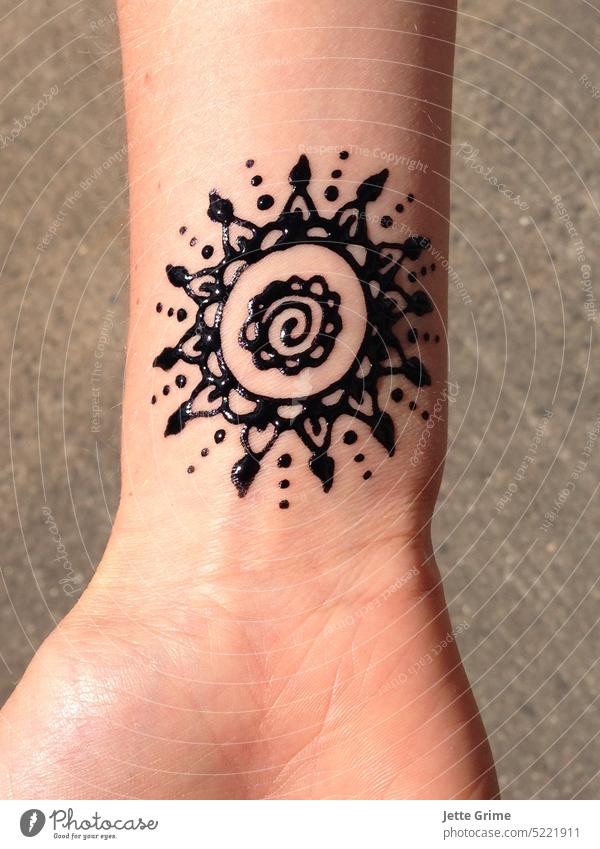
Conclusion:
Henna tattoos offer a beautiful and unique way to express oneself through body art. Whether you choose a traditional design or create your own, a henna tattoo can hold significant cultural and spiritual meaning. By caring for your henna tattoo properly, you can ensure that it lasts as long as possible and continues to bring joy and beauty to your life.

I am Harvey Berry, a tattoo enthusiast who has immersed himself in the diverse world of ink, passionately exploring the beauty and artistry within each tattoo. My mission extends beyond uncovering the aesthetics of tattooing; it involves sharing in-depth knowledge across all aspects of this art form.
Fueled by genuine curiosity and love for every facet of tattooing, I have diligently crafted well-researched articles, with a special focus on the Tattoo Meaning of Impeccable Nest section. Here, my aim is to help the tattoo community gain a deeper understanding of the meanings and values embedded in each tattoo.
One of my primary goals is to encourage responsible decision-making when it comes to getting inked. I recognize that choosing to get a tattoo is a significant personal decision that requires careful consideration. Hence, I provide diverse resources covering the meaning of tattoos, the tattooing process, aftercare tips, and other valuable information.
Whether you are a seasoned tattoo enthusiast or embarking on your first exploration of the world of body art, I aspire to be a reliable resource for you at every step of your journey. I hope that my extensive knowledge of tattoos, especially in the Tattoo Meaning section, will assist you in finding inspiration to express yourself through the art of tattoos.
